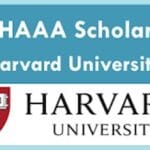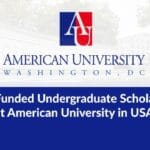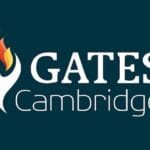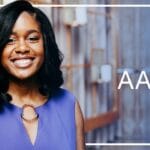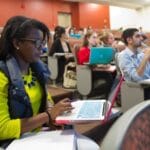Learn how to write a powerful Statement of Purpose (SOP) for scholarships in 2026. Includes a complete guide, format, pro tips, and 10 full SOP samples for all major subjects and programs.
Craft a winning Statement of Purpose (SOP) for scholarships in 2025 with this guide. Includes a proven format, pro tips, and 10 sample SOPs for fields like International Relations, Environmental Engineering, AI, and more.
What is a Statement of Purpose (SOP)?
A Statement of Purpose (SOP) is a formal essay that outlines your academic background, intellectual interests, career goals, and reasons for applying to a specific scholarship. Unlike a resume or transcript, the SOP is your opportunity to narrate your journey, highlight your drive, and demonstrate alignment with the scholarship’s mission. A compelling SOP is personal, purposeful, and persuasive, offering scholarship committees insight into your values, vision, and potential impact.
Why a Strong SOP Matters
With thousands of applicants boasting similar academic credentials, the SOP is your chance to stand out. It showcases:
- Your unique story and motivations.
- How the scholarship aligns with your goals.
- Your potential to contribute to your field and society.
In 2025, scholarships like Chevening, DAAD, and Fulbright emphasize leadership, impact, and global collaboration, making a well-crafted SOP essential.
Format of an SOP for Scholarship Applications
To ensure clarity and impact, structure your SOP as follows:
- Introduction: Introduce yourself, the scholarship, and your field of interest.
- Academic Background: Highlight relevant studies, achievements, and research experience.
- Motivation and Career Goals: Explain your passion for the field and long-term objectives.
- Why This Scholarship: Connect the scholarship’s mission to your goals.
- Why This Institution (if applicable): Specify features of the institution that attract you.
- Leadership and Extracurricular Activities: Showcase relevant skills and experiences.
- Conclusion: Reinforce your commitment and readiness.
Word Limit: Typically 500–1,000 words (check scholarship guidelines). Tone: Professional, authentic, and concise.
10 Sample SOPs for Scholarship Applications
Below are 10 sample SOPs tailored to various scholarships and fields, designed to inspire your own.
Sample 1: Chevening Scholarship – International Relations
Introduction: I am Ayesha Khan, a Political Science graduate from the University of Nairobi, Kenya, applying for the Chevening Scholarship 2026 to pursue a Master’s in International Relations at the University of Birmingham. Growing up in a post-conflict community, I developed a deep commitment to peacebuilding and diplomacy.
Academic Background: I graduated with a 3.9 GPA, earning top honors for my thesis, “Mediation Strategies in East African Conflicts.” My coursework in international political systems and negotiation theory, combined with two Best Delegate awards at Model UN conferences, strengthened my expertise.
Motivation and Career Goals: I aim to become a conflict resolution specialist at the African Union, launching a youth-focused diplomacy initiative to foster grassroots peacebuilding. The UK’s academic excellence and Chevening’s network will equip me to achieve this.
Why Chevening: Chevening’s focus on leadership and global networking aligns with my vision of shaping peace policies. Its alumni community will connect me with change-makers worldwide.
Why This Institution: Birmingham’s cutting-edge research in conflict resolution and its diverse faculty make it ideal for my goals.
Leadership and Extracurriculars: I led a university peace advocacy group, organizing dialogues with 200+ participants, and volunteered with local NGOs to support displaced families.
Conclusion: The Chevening Scholarship will empower me to drive impactful change in global diplomacy. I am grateful for your consideration.
Sample 2: DAAD Scholarship – Environmental Engineering
Introduction: I am Jens Maluleke, a Civil Engineering graduate from the University of Pretoria, South Africa, applying for the DAAD Scholarship to pursue a Master’s in Environmental Engineering at TU Munich.
Academic Background: With a 3.8 GPA, I designed a sustainable water filtration system for rural communities, winning 1st place at the National Engineering Expo. My coursework focused on water resource management and green infrastructure.
Motivation and Career Goals: Inspired by droughts in southern Africa, I aim to become an environmental policy advisor, designing water conservation systems for underserved regions.
Why DAAD: Germany’s leadership in sustainable technology and DAAD’s commitment to global development align with my mission to address water scarcity.
Why This Institution: TU Munich’s advanced labs and focus on practical solutions make it the perfect place to advance my skills.
Leadership and Extracurriculars: I spearheaded a student-led clean water initiative, serving 500+ households, and mentored young engineers in my community.
Conclusion: The DAAD Scholarship will enable me to contribute to Africa’s green transition. Thank you for considering my application.
Sample 3: MEXT Scholarship – Computer Science (AI Focus)
Introduction: I am Maria Gutierrez, a Computer Science graduate from the University of Buenos Aires, Argentina, applying for the MEXT Scholarship 2026 to pursue a Master’s in Artificial Intelligence at Kyoto University.
Academic Background: I graduated with honors, developing a machine learning model for crop yield prediction, adopted by a local agricultural startup. I completed internships in natural language processing, enhancing my AI expertise.
Motivation and Career Goals: I aim to integrate AI into climate-smart agriculture solutions for Latin America. Japan’s innovation ecosystem will accelerate my research.
Why MEXT: MEXT’s support for cutting-edge research and multicultural collaboration aligns with my vision for sustainable AI development.
Why This Institution: Kyoto University’s AI labs and interdisciplinary approach make it ideal for my goals.
Leadership and Extracurriculars: I co-founded a coding bootcamp for rural youth, training 100+ students, and presented at regional tech conferences.
Conclusion: The MEXT Scholarship will empower me to lead AI-driven sustainability efforts. Thank you for your consideration.
Sample 4: Swedish Institute Scholarship – Public Health
Introduction: I am Femi Adewale, a registered nurse from Nigeria, applying for the Swedish Institute Scholarship to pursue a Master’s in Public Health at Karolinska Institutet.
Academic Background: I hold a Bachelor of Nursing Science from the University of Ibadan and a diploma in Community Health. My research on maternal health was published in a national journal.
Motivation and Career Goals: I aim to establish community-based maternal and child health centers in Nigeria, inspired by Sweden’s equitable healthcare model.
Why Swedish Institute: The scholarship’s focus on sustainability and global health aligns with my vision for inclusive healthcare systems.
Why This Institution: Karolinska’s expertise in public health policy offers unmatched learning opportunities.
Leadership and Extracurriculars: I led a health outreach program, serving 1,000+ rural women, and trained nurses in emergency care.
Conclusion: This scholarship will help me transform Nigeria’s healthcare landscape. Thank you for your consideration.
Sample 5: Erasmus Mundus – Sustainable Development
Introduction: I am Ana Novak, a Sociology graduate from the University of Ljubljana, Slovenia, applying for the Erasmus Mundus Joint Master Degree in Global Sustainable Development.
Academic Background: My thesis on urbanization and rural poverty earned high honors. I participated in exchange programs in France and Portugal, gaining cross-cultural insights.
Motivation and Career Goals: I aspire to work with UNDP on inclusive urban policies, leveraging the multi-country format of Erasmus Mundus to understand diverse contexts.
Why Erasmus Mundus: Its global structure and focus on collaborative projects align with my interdisciplinary approach to sustainability.
Leadership and Extracurriculars: I organized community development workshops, impacting 300+ participants, and volunteered with environmental NGOs.
Conclusion: This program will equip me to shape sustainable urban policies. I appreciate your consideration.
Sample 6: Fulbright Scholarship – Law
Introduction: I am Khalid Rahman, a law graduate from Pakistan, applying for the Fulbright Scholarship to pursue an LLM in Human Rights Law at Columbia University.
Academic Background: I completed my LLB with distinction at Punjab University, with research on gender-based violence laws published in the Law Society Review. I interned with the Human Rights Commission of Pakistan.
Motivation and Career Goals: I aim to draft reforms for international human rights organizations to protect vulnerable populations.
Why Fulbright: Fulbright’s emphasis on leadership and mutual understanding resonates with my commitment to human rights advocacy.
Why This Institution: Columbia’s global perspective and faculty expertise will enhance my legal acumen.
Leadership and Extracurriculars: I led a legal aid clinic, assisting 200+ clients, and advocated for women’s rights in national forums.
Conclusion: The Fulbright Scholarship will empower me to create lasting impact in human rights. Thank you for your support.
Sample 7: CSC Scholarship – Biomedical Sciences
Introduction: I am Nguyen Thi Lan from Vietnam, applying for the CSC Scholarship to pursue a PhD in Biomedical Sciences at Peking University.
Academic Background: I hold a Master’s in Biochemistry from Hanoi Medical University. My thesis on genetic markers for diabetes won best research at my university.
Motivation and Career Goals: I aim to establish a genetic research center in Vietnam for early disease diagnosis, leveraging China’s biotechnology advancements.
Why CSC: The CSC’s support for scientific collaboration and mentorship aligns with my research goals.
Why This Institution: Peking University’s cutting-edge labs offer unparalleled opportunities for my work.
Leadership and Extracurriculars: I mentored 50+ students in research methods and organized health awareness campaigns.
Conclusion: The CSC Scholarship will advance my contributions to global health. Thank you for your consideration.
Sample 8: Australia Awards – Data Science for Development
Introduction: I am Blessing Adegoke, a Statistics graduate from Nigeria, applying for the Australia Awards to study Data Science at the University of Melbourne.
Academic Background: With a 4.0 GPA, I developed a poverty prediction model presented at the African Data Science Conference.
Motivation and Career Goals: I aim to lead data-driven policy research in Sub-Saharan Africa to address inequality and enhance transparency.
Why Australia Awards: The scholarship’s focus on development impact aligns with my vision for data-driven governance.
Why This Institution: Melbourne’s data science program offers world-class training in applied analytics.
Leadership and Extracurriculars: I led a data literacy program for 150+ students and volunteered with NGOs on poverty mapping.
Conclusion: This scholarship will enable impactful policy work in Africa. Thank you for considering my application.
Sample 9: Eiffel Scholarship – Arts and Culture Management
Introduction: I am Moussa Diallo, an arts curator from Senegal, applying for the Eiffel Excellence Scholarship to pursue a Master’s in Arts and Culture Management at Sciences Po, Paris.
Academic Background: I graduated from Dakar University with a degree in History and curated a post-colonial art exhibition that gained international recognition.
Motivation and Career Goals: I aim to build inclusive art museums in West Africa, drawing inspiration from France’s cultural heritage institutions.
Why Eiffel: The scholarship’s focus on innovation and leadership aligns with my vision for African art curation.
Why This Institution: Sciences Po’s global perspective on cultural management is ideal for my goals.
Leadership and Extracurriculars: I organized art workshops for 500+ youths and collaborated with regional museums.
Conclusion: The Eiffel Scholarship will help me preserve African heritage. Thank you for the opportunity.
Sample 10: Rhodes Scholarship – Interdisciplinary Sciences
Introduction: I am Daniel Mensah from Ghana, a Physics and Philosophy graduate from Ashesi University, applying for the Rhodes Scholarship to study at the University of Oxford.
Academic Background: My dual degree explored the ethics of emerging technologies. I co-authored a paper on AI ethics and led a national tech-for-good initiative.
Motivation and Career Goals: I aim to shape AI governance in Africa, leveraging Oxford’s interdisciplinary programs and Rhodes’ leadership mission.
Why Rhodes: The scholarship’s emphasis on change-makers aligns with my vision for responsible AI development.
Why This Institution: Oxford’s unique blend of science and ethics is perfect for my interdisciplinary goals.
Leadership and Extracurriculars: I founded a tech ethics club, engaging 200+ students, and spoke at regional AI conferences.
Conclusion: The Rhodes Scholarship will equip me to lead ethical AI policy in Africa. Thank you for your consideration.
Pro Tips for Crafting a Winning SOP in 2025
- Customize for Each Scholarship: Tailor your SOP to reflect the scholarship’s mission (e.g., Chevening’s leadership focus, DAAD’s sustainability goals).
- Be Specific: Use concrete examples, like awards, projects, or community impact, to support your claims.
- Stay Professional: Avoid informal language or vague statements.
- Proofread and Edit: Eliminate grammatical errors to maintain credibility.
- Adhere to Word Limits: Typically 500–1,000 words; check guidelines.
- Show Personality: Let your passion and voice shine through to create a memorable narrative.
When to Start Your SOP
Begin drafting your SOP 1–2 months before the scholarship deadline to allow time for:
- Multiple drafts and revisions.
- Feedback from mentors or peers.
- Customization for multiple applications.
Key Scholarship Deadlines for 2026 Intake:
| Scholarship Name | Recommended SOP Start Date | Application Deadline |
|---|---|---|
| Chevening Scholarship | August 2025 | 7 October 2025 |
| DAAD Scholarship (Germany) | August 2025 | 31 October 2025 (varies) |
| MEXT Scholarship (Japan) | March 2026 | May–June 2026 (embassy) |
| Swedish Institute Scholarship | December 2025 | February 2026 (TBA) |
| Erasmus Mundus Scholarships | September 2025 | December 2025–January 2026 |
| Fulbright Scholarship | January 2026 | May 2026 (varies) |
| CSC Scholarship (China) | October 2025 | December 2025–January 2026 |
| Australia Awards Scholarship | December 2025 | 30 April 2026 |
| Eiffel Excellence Scholarship | September 2025 | January 2026 (TBA) |
| Rhodes Scholarship | May 2026 | August 2026 (varies) |
Conclusion
A well-crafted SOP is your key to unlocking scholarship opportunities in 2025. By following the structured format, drawing inspiration from the sample SOPs, and tailoring your narrative to each program, you can create a compelling case for your candidacy.
Start early, be authentic, and let your unique journey shine. Whether pursuing Chevening, Fulbright, or Rhodes, your SOP can pave the way to a transformative academic and professional future.
References
- UC Davis Financial Aid: Personal Statement Tips – https://financialaid.ucdavis.edu/scholarships/tips/personal
- LaGuardia Community College: Scholarship Personal Statement Guide – https://www.laguardia.edu/uploadedfiles/main_site/content/supporters_friends/docs/scholarship_personal_statement.pdf
- Northeastern University: How to Write a Statement of Purpose – https://graduate.northeastern.edu/knowledge-hub/how-to-write-a-statement-of-purpose/
- Central European University: Writing a Statement of Purpose – https://caw.ceu.edu/writing-statement-purpose.

